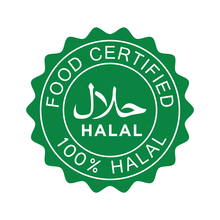Many Muslims consider halal goat and lamb meat as a staple food and an essential part of their traditional diet. Currently, the majority of Minnesota halal meat stores sell mostly imported frozen meat, but many consumers crave high-quality fresh meat. University of Minnesota Extension is helping to satisfy that craving by providing a web resource called Halal-friendly Minnesota.
“Extension developed a range of educational resources including the web page, videos and handouts about what it takes to produce meat according to Islam,” says Serdar Mamedov, a St. Cloud-based Extension educator who has been working with diverse community stakeholders to raise awareness about the shortage of fresh halal meat and build infrastructure elements for the domestic halal meat supply chain. “Because of this work, I built relationships with and got to know many local livestock producers. I became familiar with their lives on the farm and how they survive daily challenges.”
The web resource grew out of the expertise of people like Mamedov, who works in Extension health and nutrition programs; Extension leaders and educators in agriculture, food and natural resources; and those in Extension’s Regional Sustainable Development Partnerships. That expertise is informed by the relationships Extension has with farmers, food businesses and communities.
From intrigue to trust
Many livestock producers have become intrigued by the opportunity to diversify their markets and have expressed a strong interest to build a trusting relationship with the Muslim community, according to Mamedov.
“One strategy they can employ to build trust with halal consumers is to become halal certified,” he says. “The certification can help producers to get recognized among the wider Muslim community because it demonstrates that they invested time and resources to become compliant with halal food requirements. Halal consumers tend to trust the product with the halal logo because it was certified by the Muslim organization.”
These producers are willing to make changes in their animal farming practices to meet the needs of halal consumers. “This makes me feel optimistic about Minnesota’s halal meat market,” says Mamedov. “Building a transparent and sustainable domestic halal meat supply chain will not only increase the availability of culturally appropriate meat but also will make many families more food secure.”



